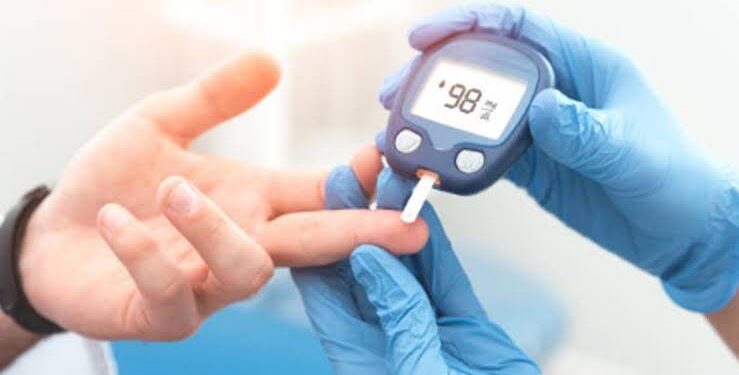Main highlights:
- What researchers have found out through sleeping schedules of people.
- Night owls and early birds with their differentiation in sleep schedules.
Night owls frequently exhibit greater incidences of diabetes and neurological diseases, according to studies. A significant study that followed 500,000 people for over seven years discovered that night owls had a 10% higher risk of passing away than early risers.
Is diabetes more prone to night owls and early birds?
Researchers have not known whether those with late-night tendencies retain underlying metabolic differences from those early morning larks, aside from social and behavioural factors such as irregular eating or exercise, that can lead to poor health in night owls.
According to a recent study, our wake/sleep cycles generate metabolic variations and change our body’s preference for energy sources, which may explain why people who are “night owls” have a higher risk of type 2 diabetes and heart disease than people who are “early birds.”
According to the study, those who stay up late have a decreased ability to use fat as fuel, which means that lipids may accumulate in the body and raise the risk of type 2 diabetes and cardiovascular disease.
According to researcher Steven Malin from Rutgers University in the US, “the disparities in fat metabolism between ‘early birds’ and ‘night owls’ shows that our body’s circadian rhythm (wake/sleep cycle) could alter how our bodies utilise insulin.”
The scientists divided people into two groups (early and late) for the study, which was published in the journal Experimental Physiology, based on their “chronotype”—our innate predisposition to seek out the activity and sleep at certain times.
Advanced imaging, insulin sensitivity testing, and breath samples were all employed to evaluate body mass and body composition.
For a week, participants were observed to determine their daily activity habits. To reduce the effect of diet on the outcomes, they had to fast overnight while eating a diet with restricted calories and nutrition.
They underwent a test to determine their preferred fuel before engaging in two 15-minute sessions of activity on a treadmill: one at a moderate intensity and the other at a high intensity.
Through an uphill challenge, where the incline was increased by 2.5 per cent every two minutes until the person reached a point of exhaustion, the participants’ aerobic fitness levels were assessed.
Researchers discovered that early risers burn more fat for energy during activity and at rest than night owls. Additionally, early birds were more insulin sensitive.
Contrarily, night owls are insulin resistant, which means their bodies prefer carbohydrates to fats as an energy source and need more insulin to drop blood glucose levels.
The ability of early birds and night owls to burn carbs or fat for energy at rest and during high- and moderate-intensity workouts were compared as one of the markers of metabolic health.
They discovered that the early birds were more insulin-sensitive and burnt more fat for energy during both rest and exercise. The night owls, in contrast, were more insulin resistant and burned carbohydrates for energy rather than fat. According to the study, both characteristics may increase night owls’ chance of developing diseases like type 2 diabetes and heart disease.

According to Steven Malin, senior author of the study and professor of kinesiology and metabolism at Rutgers University, the findings show that circadian rhythm, the body’s natural sleep/wake cycle, might be utilised to assist assess the risk of type 2 diabetes and heart disease.
According to a news release from Malin, “the disparities in fat metabolism between ‘early birds’ and ‘night owls’ shows that our body’s circadian cycle could alter how our bodies utilise insulin.” We propose that chronotype could be used as a factor to predict an individual’s risk for disease because it seems to affect our metabolism and hormone function.
According to the researchers, future studies could aid medical professionals in identifying high-risk individuals based on their chronotype in order to give better preventative care.
Why early birds have a different metabolism from their more nocturnal counterparts is yet unknown. According to the researchers, one explanation could be that the research required all participants to arrive at the lab very early in the morning, which might have interfered with night owls’ natural tendency to sleep later. Another possible explanation is that early risers typically had better total aerobic fitness.
Whether you’re a morning person or prefer to stay up late, follow-up studies could help researchers figure out the ideal routine and methods for general health.
In the press release, he stated that more research is required to determine whether exercising earlier in the day has greater health benefits. This research will look at the relationship between chronotype, exercise, and metabolic adaptation.
Because the circadian rhythm affects how glucose is metabolised in the body, an earlier study from 2018 that was published in the journal Advances in Nutrition indicated that eating late was also associated with an increased risk of Type-2 diabetes. Glucose levels ought to progressively drop throughout the day, peaking at night. But because night owls frequently eat right before bed, their blood glucose levels rise just before they go to sleep, which could have a negative impact on metabolism because their bodies don’t function according to biological protocol.
























